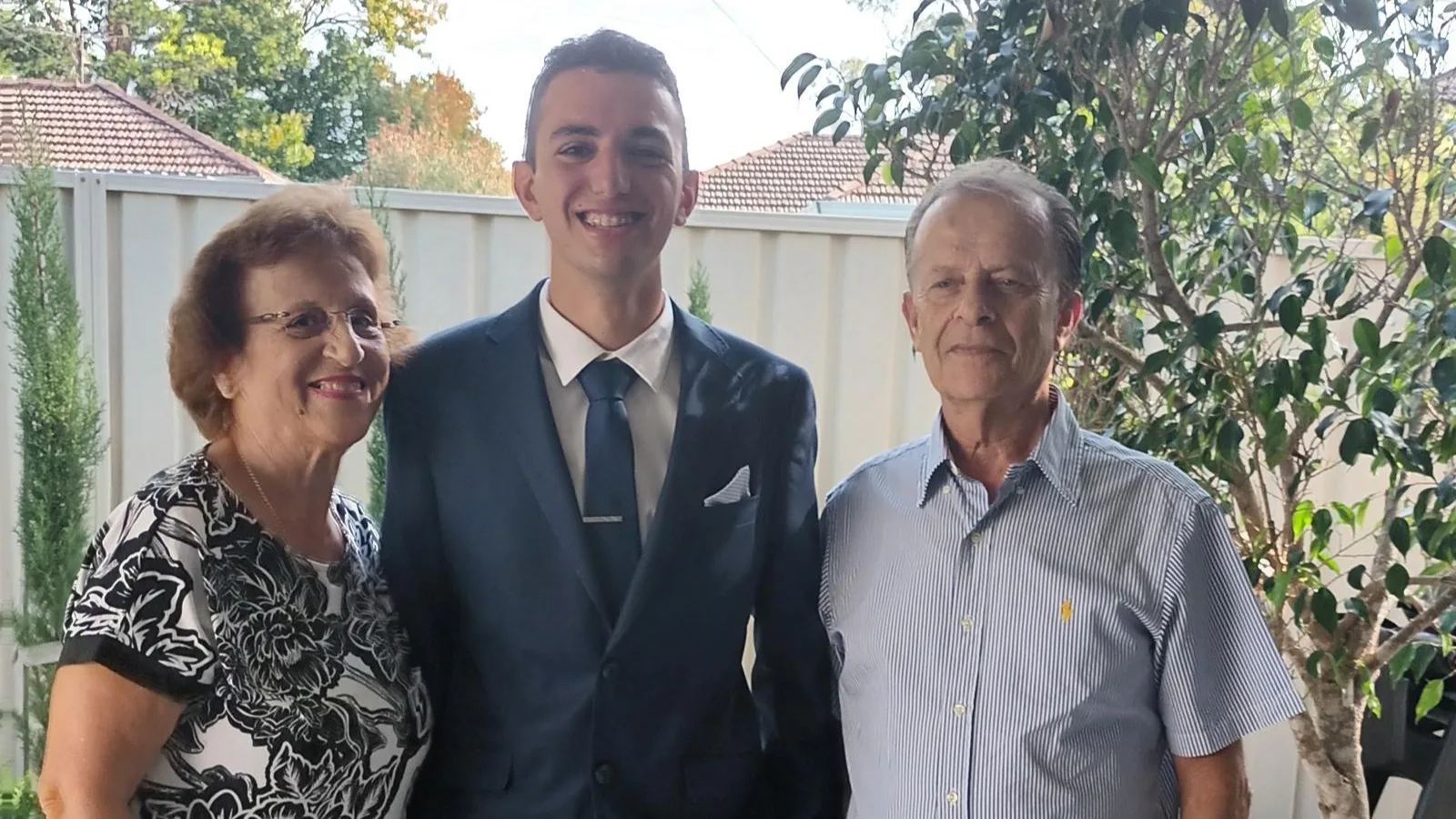For 17-year-old Andrew Caramanis, the Greek language is more than just words – it’s a connection to his roots, a bridge between generations, and a passion that shapes his identity.
Growing up in Sydney, Australia, with family ties to Corinth and Lakonia in Greece, Andrew has embraced his heritage through language, culture, and community involvement. As a Year 12 student at St Aloysius’ College and Language Ambassador for the NSW School of Languages, he is dedicated to preserving and promoting Greek for future generations.
In this interview, Andrew shares what inspired his love for the Greek language, the challenges and rewards of learning it, and how he hopes to contribute to its preservation in the years to come.
Tell us a little bit about yourself and your Greek upbringing.
My Greek heritage is a vital part of my identity, with my father’s family originating from Corinth – Kiato and Vasiliko, and my mother’s side from Lakonia – Kyparissi and Kremasti. These connections to such historic and picturesque places inspire me and instill a deep sense of pride in my cultural roots.
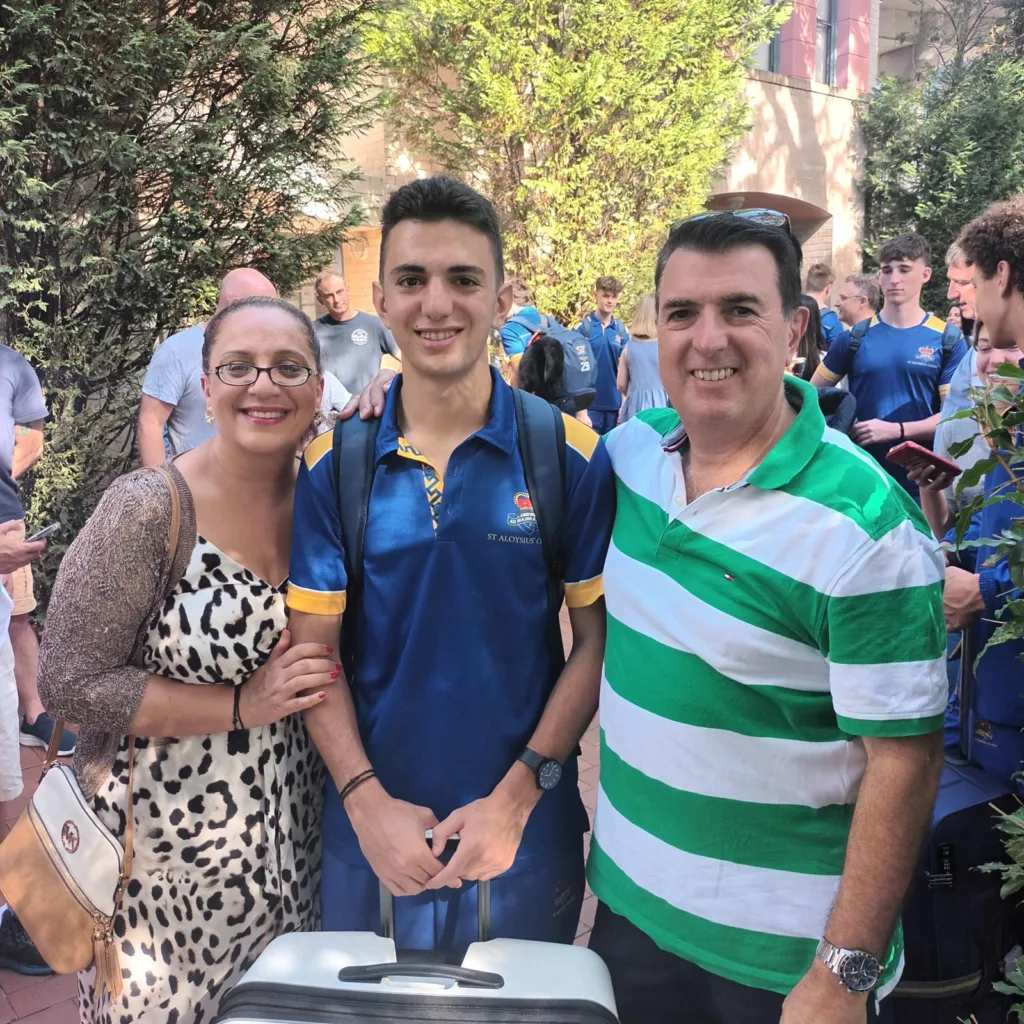
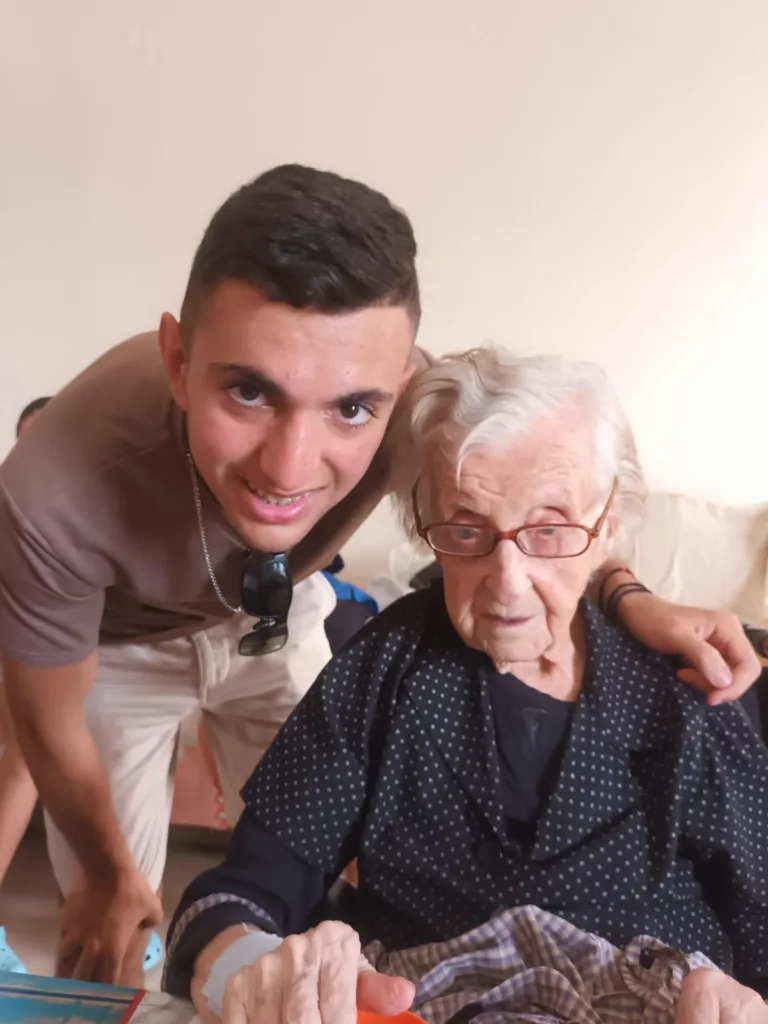
What inspired your passion for the Greek language and culture, despite being born in Sydney? How old were you when you became interested?
My passion for the Greek language and culture stems from my family’s deep connection to our heritage. Growing up in Sydney, I was surrounded by Greek traditions, stories, and celebrations, which made me feel closely linked to my roots despite being far from Greece. I became interested in the language and culture at a young age, around seven or eight, when my parents and grandparents would share stories about our family’s history. Their pride and the beauty of Greek traditions sparked my curiosity and a strong desire to learn more about where I come from.
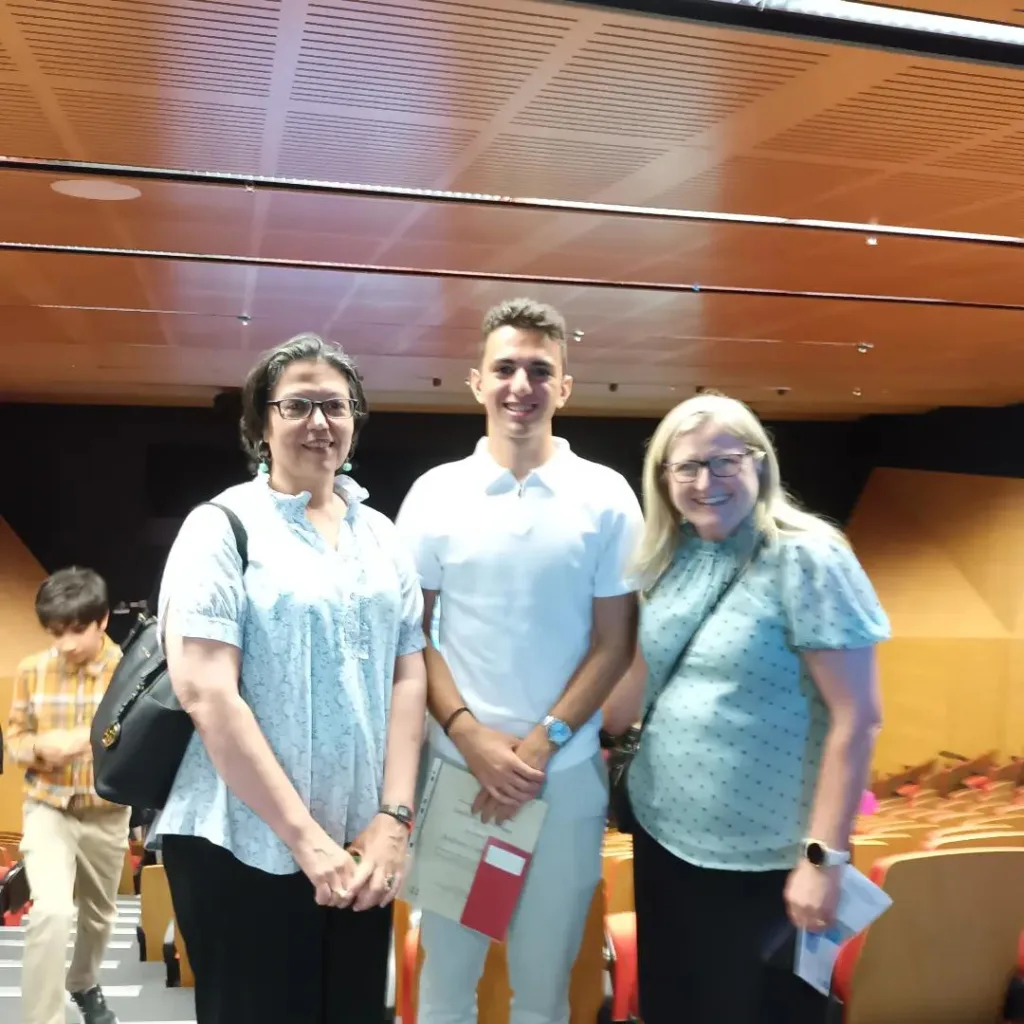
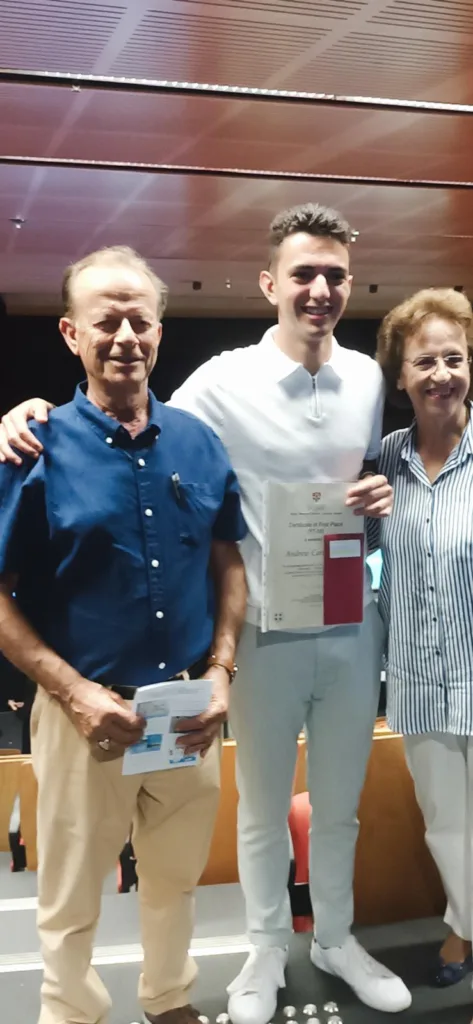
What do you love the most about the Greek language and culture?
What I love most about the Greek language and culture is its richness and depth, which reflect a profound history and enduring traditions. The language itself is poetic and expressive, carrying the legacy of ancient philosophers and writers who shaped the way we think today. Culturally, I am drawn to the emphasis on family, hospitality, and community—values that create a strong sense of belonging and connection. Celebrations like Easter, with their vibrant customs and symbolic rituals, and the delicious Mediterranean food, highlight the beauty and warmth of Greek life. It’s this blend of history, tradition, and human connection that makes me so proud of my heritage.
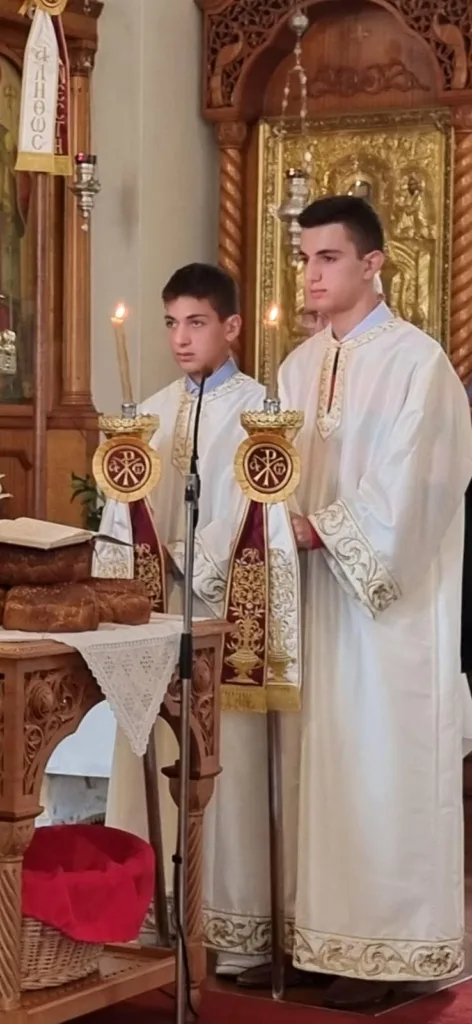
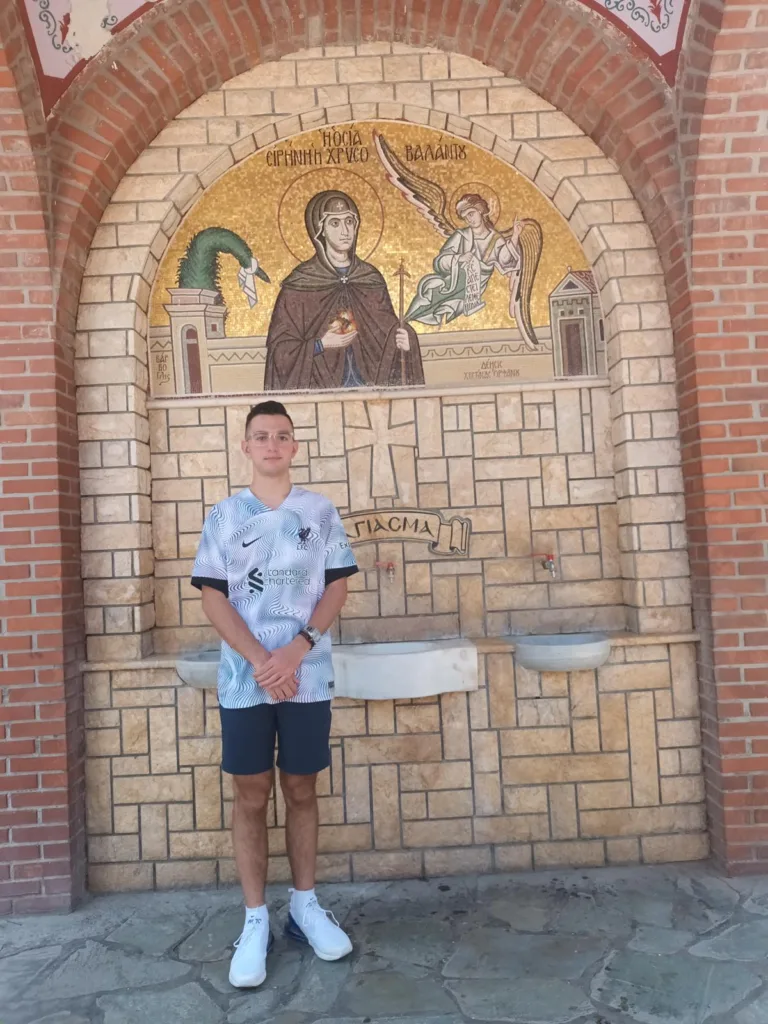
What reaction have you received from your family and friends about your love for the Greek language?
My family has been incredibly supportive of my love for the Greek language and culture. They’ve encouraged me to embrace our heritage, sharing stories, traditions, and even teaching me Greek words and phrases from a young age. My maternal grandparents take great pride in seeing me connect with the culture they hold dear. Among my friends, the reaction has been mostly positive and curious. Many admire my passion and enjoy hearing about Greek traditions or learning phrases from the language. Their interest motivates me to share more about my roots and helps strengthen my bond with both my heritage and those around me.
Where are you currently at in your journey with the Greek language and culture? How do you approach balancing your Greek studies with other school commitments?
Currently, I’m deeply immersed in expanding my understanding of the Greek language and culture. While I’ve developed a strong foundation in speaking and comprehension, I’m continually striving to improve my fluency and broaden my vocabulary by reading Greek novels, listening to Greek music and watching Greek movies. Alongside the language, I love exploring Greek history, mythology, and traditions, which enrich my connection to my heritage.
As part of my journey, I’m studying Extension 1 Modern Greek for the HSC through the NSW School of Languages. This program has been an incredible opportunity to enhance both my linguistic skills and cultural knowledge. Balancing these studies with other school commitments can be challenging at times, but I’ve developed a structured routine. I dedicate specific times, often in the evenings or on weekends, to Greek practice, whether it’s completing assignments, speaking, or engaging with Greek traditions and history. I also integrate my passion into my daily life through music, conversations with family, and reading, which helps me stay connected without feeling overwhelmed. This approach allows me to stay focused on my goals while managing my overall workload effectively.
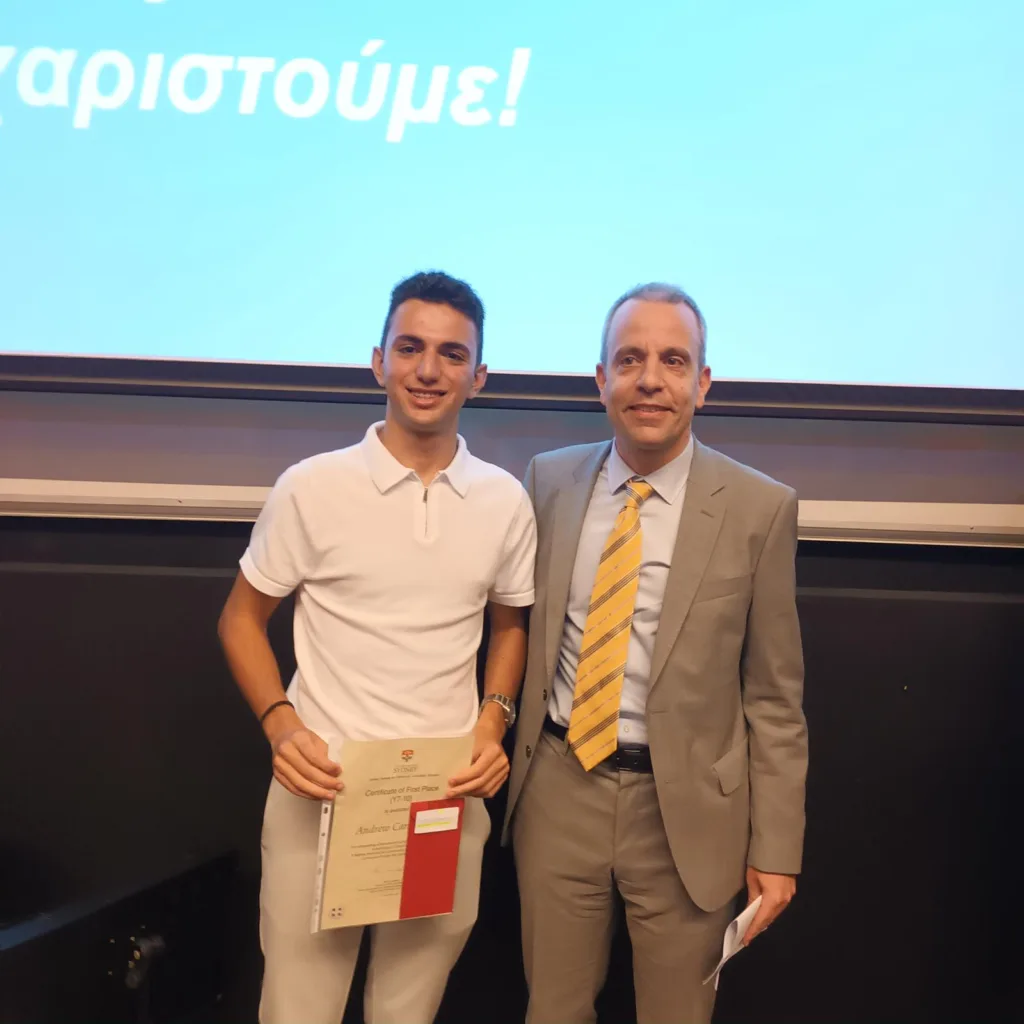
Can you share some memorable moments or challenges from your journey as a Language Ambassador for the NSW School of Languages?
As a Language Ambassador for the NSW School of Languages, I’ve had several memorable moments that have shaped my experience. One of the most rewarding moments was undertaking all the cultural assignments and working together with other students from many different languages. It was inspiring to see how passionate everyone was about their languages, and it reminded me of the power of language in connecting people.
However, the journey has also had its challenges. One of the difficult aspects was balancing the responsibilities of being an ambassador with my own academic commitments. It required careful time management and a lot of coordination with other students and teachers. But overcoming these challenges has been incredibly fulfilling, as it has allowed me to further develop leadership skills, deepen my appreciation for languages, and connect with a diverse group of students.
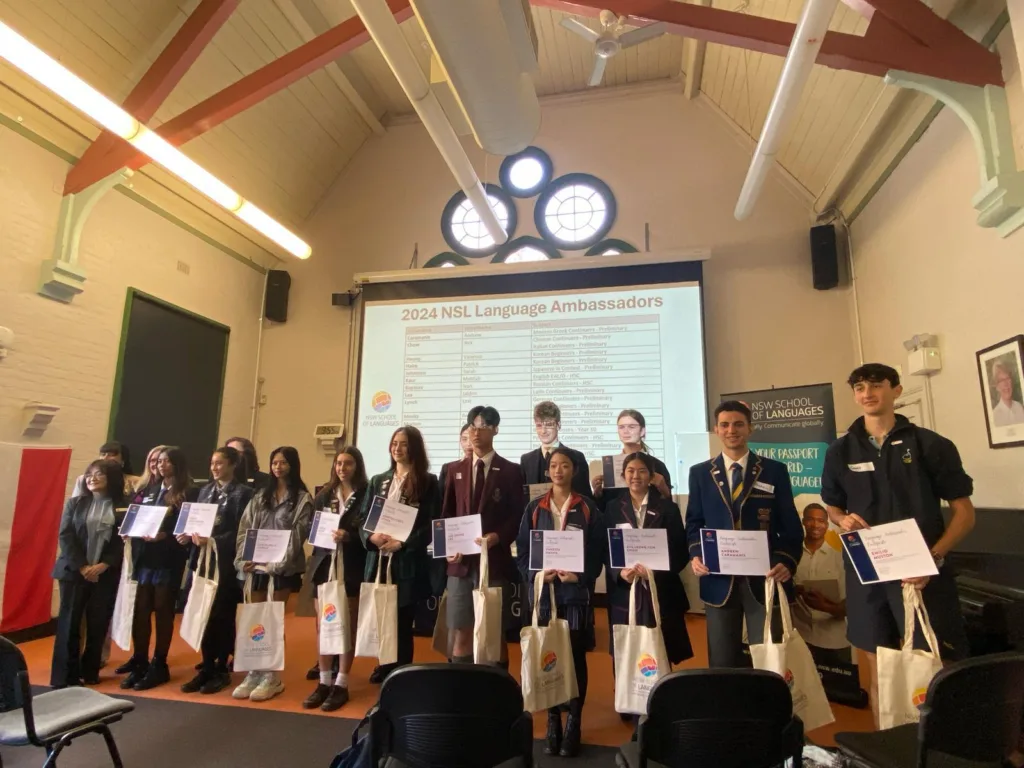
Do you have plans for studying and working in Greece? Please explain in more detail. Are there specific fields or cities that interest you?
I have plans to study Economics and Law, and I’m particularly drawn to the idea of exploring these fields in both Greece and Australia. The combination of understanding how economies work and the legal systems that shape societies excites me, especially in a country as rich in history and contemporary challenges as Greece.
Athens, as the political and economic hub of Greece, stands out as a key city for my studies. However, Thessaloniki also intrigues me with its dynamic cultural environment. Studying and working in Greece would not only allow me to connect with my heritage but also further my academic and professional development.
While I am eager to study in Greece, I plan to start my university education in Sydney, where there are excellent opportunities for Economics and Law. I also look forward to participating in a university exchange program, as it will provide me with a broader international perspective, deepen my understanding of global systems, and expose me to diverse cultures. This experience will help me enhance my education before returning to Sydney to complete my degree.
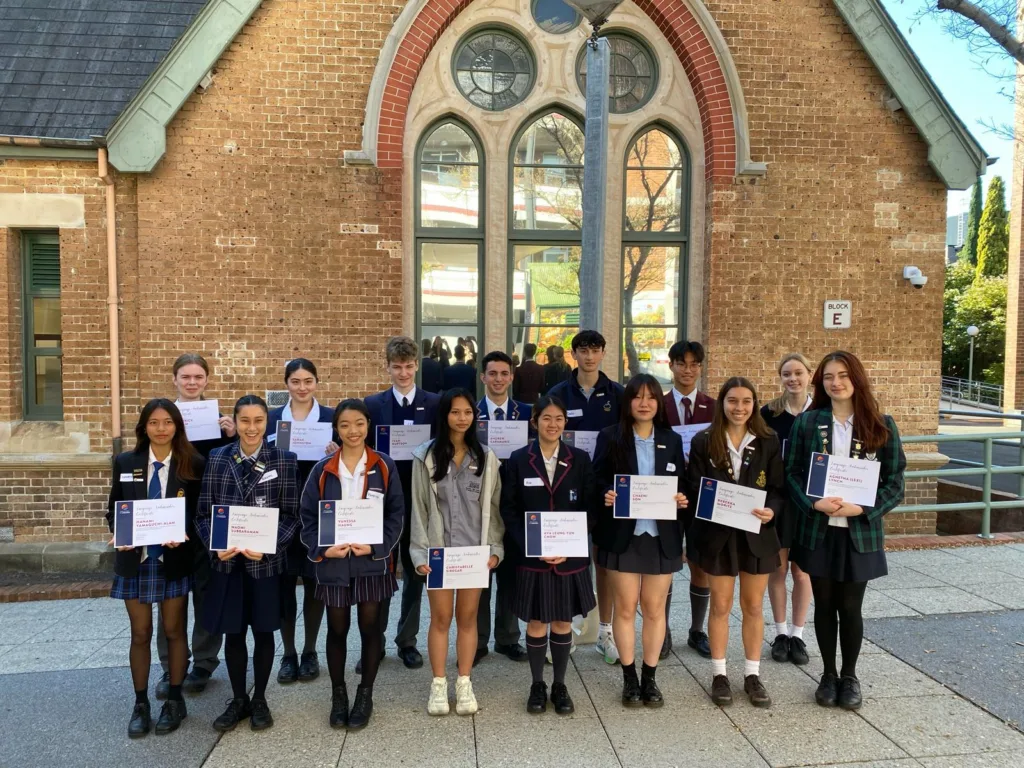
How do you envision contributing to the promotion and preservation of the Greek language and culture in the future?
In the future, I envision contributing to the promotion and preservation of the Greek language and culture by actively engaging with my community and cultural organisations. As a member of St Andrew’s Greek Orthodox Church in Gladesville, I participate in activities that celebrate Greek traditions and strengthen our community. Additionally, I plan to join the Zarax Association, my maternal grandfather’s association, and the Greek association at whichever university I attend after Year 12, to further connect with my heritage and support initiatives that promote Greek culture.
Through these efforts, I aim to take part in events, festivals, and educational programs that highlight the beauty of the Greek language and traditions. By collaborating with both local and international Greek-speaking communities, I hope to inspire future generations to preserve and embrace our culture, ensuring its continuity for years to come.
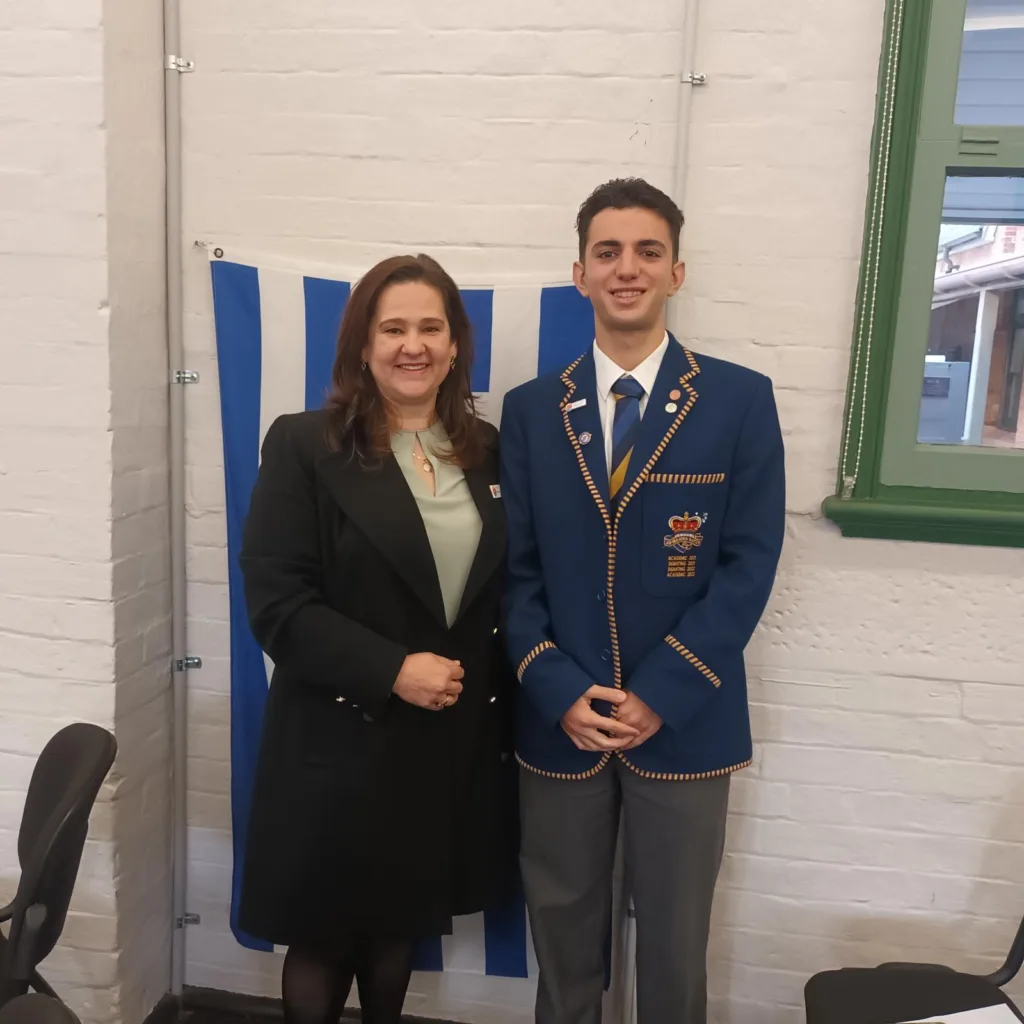
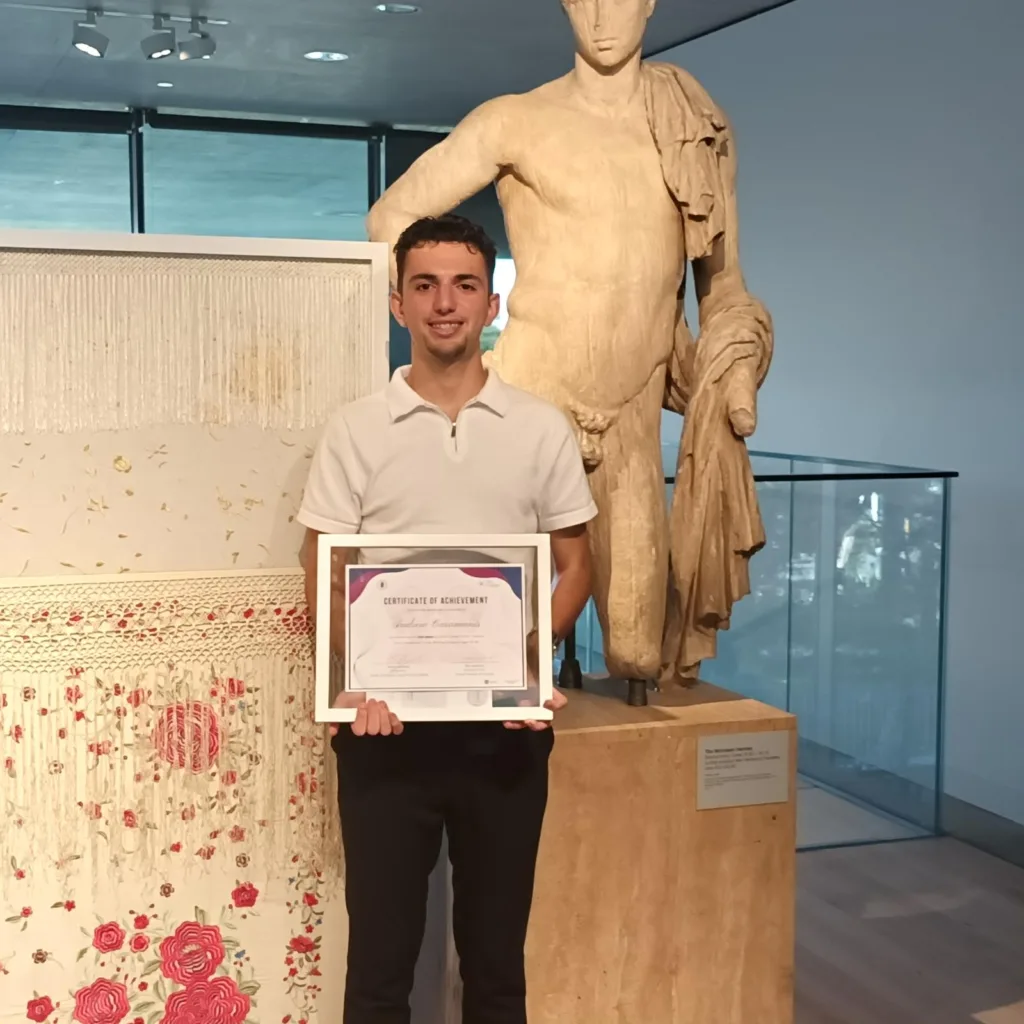
What advice would you give to other students considering learning Greek or another heritage language?
My advice to students considering learning Greek or another heritage language is to embrace it with an open mind and a deep sense of curiosity. Learning a heritage language is not just about mastering words; it’s about connecting with your roots, understanding your culture, and preserving traditions for future generations. Start by engaging with the language in ways that feel meaningful to you—whether that’s through conversations with family, watching films, or reading books.
Don’t be discouraged by challenges along the way, as learning any language takes time and practice. Instead, focus on the rewards, such as gaining a deeper understanding of your history and building stronger connections with others who share your heritage. Remember, you’re not just learning a language—you’re continuing a legacy that has been passed down for generations. Stay patient, stay motivated, and enjoy the journey of discovering a new dimension of your identity.
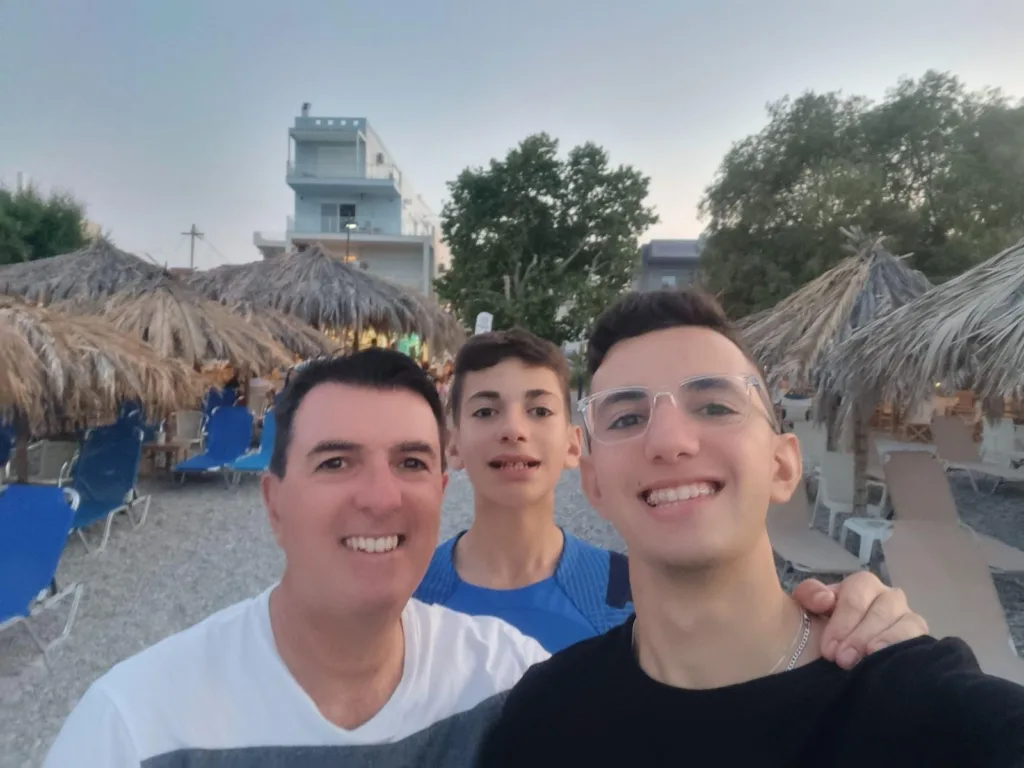
What role do you think heritage and community play in keeping languages alive for future generations?
Heritage and community play a crucial role in keeping languages alive for future generations. Language is not just a set of words—it’s a living connection to history, traditions, and identity. By preserving our heritage, we ensure that the cultural values, stories, and experiences of past generations continue to be passed down. Communities are essential in this process because they provide a space for the language to be spoken, celebrated, and taught.
Family gatherings, cultural events, and community organisations, like the Greek Association or local parishes, offer opportunities to practice the language and engage with others who share the same heritage. This creates a sense of belonging and pride that motivates younger generations to maintain the language. Additionally, communities help ensure that the language is not confined to textbooks but is integrated into everyday life, making it more accessible and relevant for future speakers. Through these efforts, heritage and community act as the guardians of language, ensuring it thrives for years to come.
